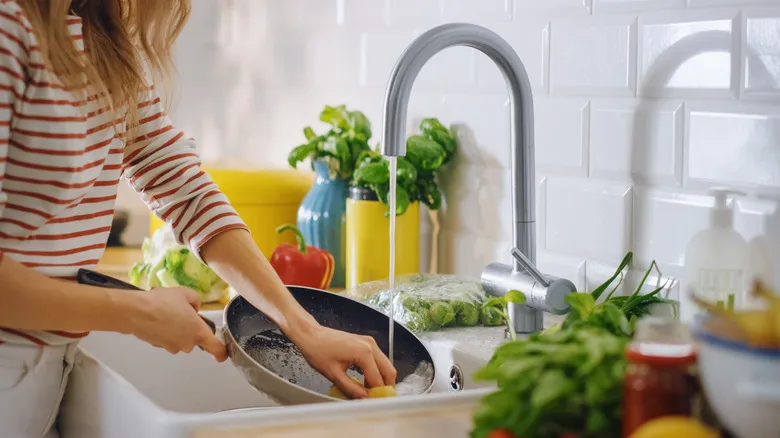1. Cooking oil
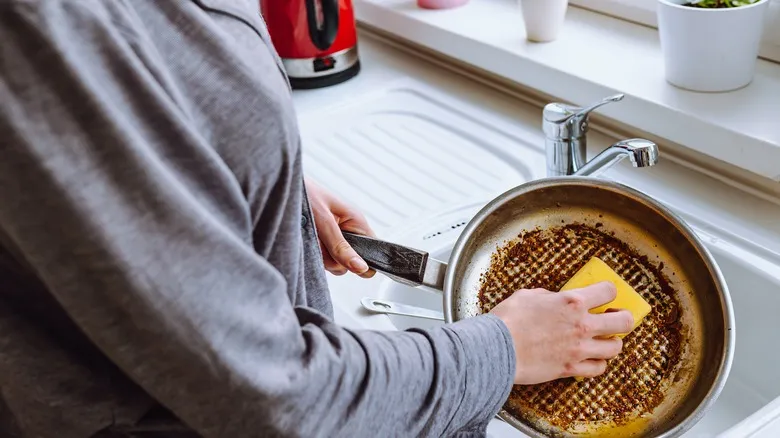
While indulging in fried foods like crispy chicken or bacon can be a real treat, the cleanup can be quite a hassle. You’ve probably heard that pouring oil down the sink is a no-no, yet when faced with a skillet full of leftover cooking oil, it might seem like the simplest option. However, resist that urge! Disposing of oil in the sink is a serious mistake that can lead to significant plumbing issues. Although it may appear that the oil will easily flow down the drain, it will solidify as it cools, resulting in clogs in your pipes. The cost and hassle of repairing your drain far exceed the temporary convenience of pouring oil down the sink.
Even if you’ve previously disposed of cooking grease this way without any problems, it’s wise to break that habit. As professional plumber Lars Olsson mentioned to The Guardian, "If you do put a small amount [of oil] down, you'd be really unlucky if it causes any damage. But it does happen. If you're disposing of large amounts, it will happen."
So, what should you do with leftover cooking oil? The best option is to throw it away with your regular garbage. To prevent a messy situation, pour the oil into an old jar or milk jug that you plan to discard, secure the lid, and toss the container in the trash.
2. Old coffee grounds

After brewing your morning coffee, what do you do with the leftover coffee grounds? If you simply toss the contents of the coffee filter into the sink and wash them down the disposal, you could be setting yourself up for plumbing issues. While it might seem harmless at first, dumping coffee grounds down the drain can lead to clogs over time.
It may seem odd since larger food scraps can go down the drain without a problem, but coffee grounds are small enough to get trapped in your plumbing. Unlike other food items, coffee grounds do not dissolve or break down in water. Instead, they tend to clump together as water flows over them, which can eventually lead to a blockage in your sink.
If you've only disposed of coffee grounds in the sink a few times, you probably won't encounter any problems. However, if this has become a regular part of your morning routine, the accumulation of grounds can create significant issues. To prevent potential plumbing problems, it's best to throw your coffee grounds in the trash or add them to your compost.
3. Pasta water
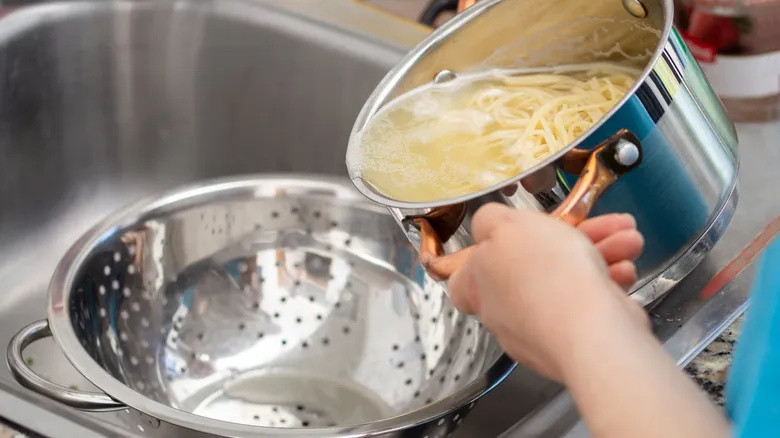
After cooking pasta, it may seem natural to pour the cooking water down the sink. However, unlike some other foods, pasta water won’t harm your drain, but it’s still not a good idea to discard it. By doing so, you’re wasting a valuable ingredient. While it might appear to be kitchen waste, pasta water is actually a fantastic component for creating rich and creamy sauces. As the pasta cooks, the water becomes starchy, making it an excellent thickening agent that helps bind ingredients together. If you’re preparing a classic dish like spaghetti bolognese, consider reserving some pasta water to enhance your sauce. It serves as an emulsifier, resulting in a rich, silky, and flavorful sauce.
Pasta water can also be utilized in various other recipes. Save it as a base for soups, sauces, and dressings, or use it to steam vegetables or cook beans. To conveniently save pasta water for future use, try using tongs to lift the pasta from the pot instead of draining it. Alternatively, place a colander over a larger pot to catch the water as you drain the pasta, then transfer the collected water into an airtight container for storage.
4. Potatoes

Starchy foods such as potatoes should never be disposed of in the sink. When preparing baked potatoes, hash browns, casseroles, fries, or other traditional potato recipes, refrain from putting potato peels and remnants down the drain. This applies to both raw and cooked potatoes. Even if you have a garbage disposal that can handle small potato pieces, the real issue arises once they enter the plumbing. Due to the high starch content in potatoes, they can become sticky and create clogs in the pipes. "Potatoes break down into a mush that can clog your drain and also gum up your disposal," explained Paul Abrams, public relations director for Roto-Rooter, to Consumer Reports.
The same problem occurs with soft mashed potatoes or other creamy potato dishes. Additionally, never dispose of instant mashed potatoes in the sink. While the powder may seem easy to wash down the garbage disposal, this is a significant error. The dehydrated potatoes absorb water and can lead to severe blockages. It’s much better to throw away your potato scraps, leftover mashed potatoes, or expired instant mashed potatoes in the trash.
5. Rice and pasta
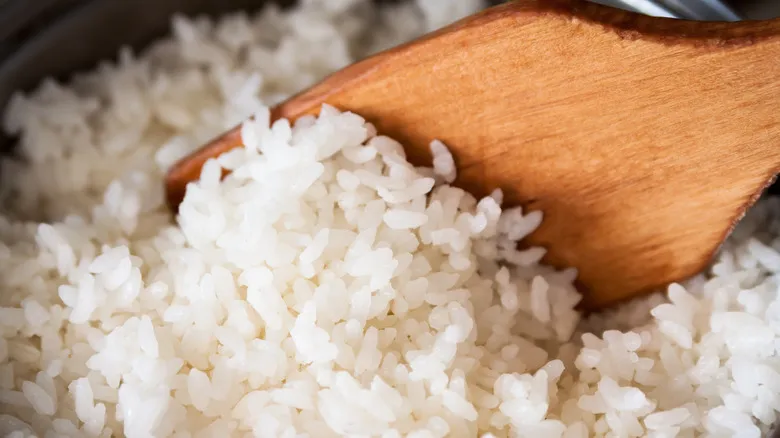
Both pasta and rice soak up water, causing them to swell and become sticky during cooking. It's crucial to remember this when disposing of cooked rice or pasta. Since these foods expand in water, they can lead to plumbing issues. As you use the sink and water flows over the rice or pasta, they will continue to swell, become sticky, and eventually clog your drain. If you keep putting rice down the drain, the grains can clump together, resulting in a more significant blockage over time.
This is yet another reason to avoid pouring pasta water down the sink. It's all too easy for slippery noodles to slip into the drain while you're trying to drain the water. Plus, as mentioned earlier, you should be saving pasta water for future use. So, let this serve as an additional incentive to refrain from disposing of your pasta water in the sink and to prevent any risk of clogging your drain with noodles.
Instead of throwing leftover rice and pasta down the sink, you can prevent drain blockages and reduce food waste by incorporating them into other tasty dishes. Leftover rice is ideal for making fried rice, soups, risotto, and more. Similarly, leftover pasta works wonderfully in soups and casseroles.
6. Oatmeal
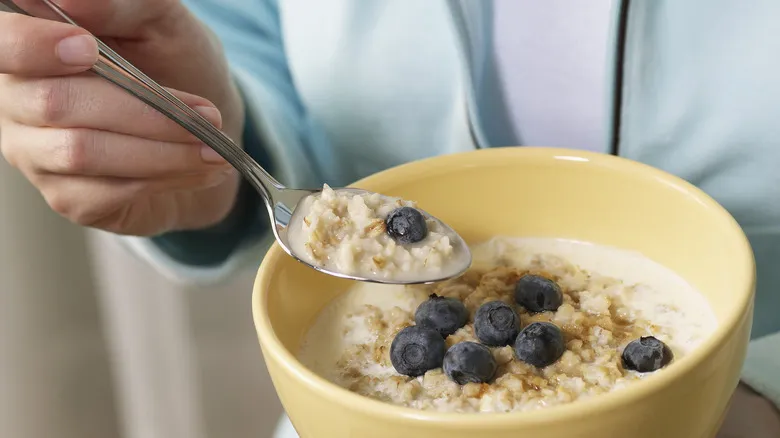
Similar to rice, oatmeal swells when it comes into contact with water. This property can lead to significant drain blockages, even from a small amount being poured down the sink. If you can envision the thick texture of oatmeal, you might already understand the potential problem. The situation worsens if the oatmeal dries after being washed down the drain, as it can harden like cement, creating serious plumbing issues. This is why it's important to avoid pouring oatmeal down the drain.
To prevent the need for a plumber, dispose of any uneaten oatmeal in the trash. If you're concerned about leaks, transfer it into a disposable container, just as you would with oil. Alternatively, you can save the oatmeal for later use. After cooking, store any leftovers in a covered container in the refrigerator for three to four days. When you're ready to enjoy it again, simply add a tablespoon of water to the leftover oatmeal and reheat it on the stovetop over medium-low heat or in the microwave. Don’t forget to enhance your bowl of oatmeal with nuts, fruits, and other fresh toppings to introduce new and exciting flavors to your leftovers.
7. Flour
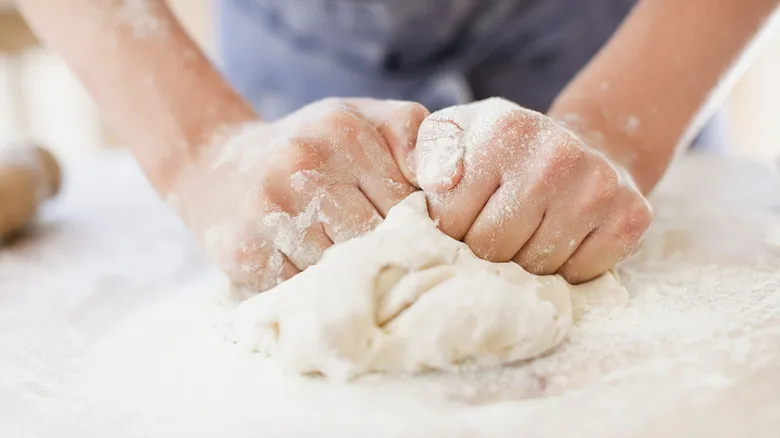
Although flour is finely ground, you might assume it can easily be washed down the drain. Unfortunately, that's not true. While it may seem convenient to rinse flour down the sink during kitchen cleanup, it can actually harm your plumbing. When flour comes into contact with water, it clumps together, creating a sticky mixture that can adhere to the sides of your pipes. This can lead to the flour binding with other food particles and debris, resulting in a blockage that may be challenging to resolve on your own.
The best way to dispose of leftover flour is to throw it in the compost or trash. However, sweeping flour directly into the trash can create a mess, as the fine powder tends to scatter. To avoid this, you can mix a little water with the remaining flour. This will create a thick paste that is much easier to dispose of without making a mess in your kitchen.
8. Eggshells
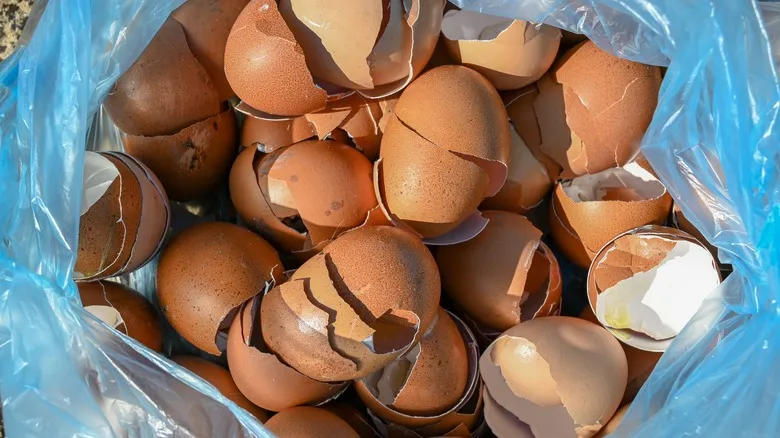
Eggshells can pose a risk to your sink since they do not dissolve in water. While you can grind the fragile shells into smaller fragments using your garbage disposal, this does not eliminate the issue. These tiny pieces can become trapped in your kitchen sink pipes, leading to clogs, particularly in older plumbing systems. A survey conducted by Consumer Reports revealed that 33% of respondents admitted to disposing of eggshells in their garbage disposals. To prevent potential damage to your drains, it's advisable to seek alternative disposal methods.
Instead of discarding the shells or sending them down the disposal, consider utilizing them as a natural fertilizer. The calcium found in eggshells is beneficial for plants. You can crush the shells and mix them into the soil of your garden to enrich it with essential minerals that your plants will appreciate. Additionally, you can bake the eggshells and combine them with birdseed to create a nutritious treat for your feathered friends (via Happy Egg).
9. Milk products

If you find an expired jug of milk in your refrigerator, your instinct might be to simply pour it down the drain. However, this isn't the best choice. Unlike many other items, milk typically won't harm your plumbing. You can generally pour small amounts of milk down the drain without worrying about clogs, although frequent disposal can lead to fat accumulation in your pipes. A little milk, cream, yogurt, or similar dairy products should drain without issue. So, what’s the concern?
While pouring milk down the drain is unlikely to damage your plumbing, it can negatively impact the environment. Milk is classified as a pollutant. Once it enters the water system, it can harm aquatic and plant life in nearby water bodies. This is primarily because the decomposition of milk consumes a significant amount of oxygen, which is essential for the survival of fish and other organisms (according to DS Smith). To prevent this environmental issue, it’s better to seal the milk jug and dispose of it in the trash, or transfer the expired milk into a sealable container before discarding it.
10. Vegetable scraps
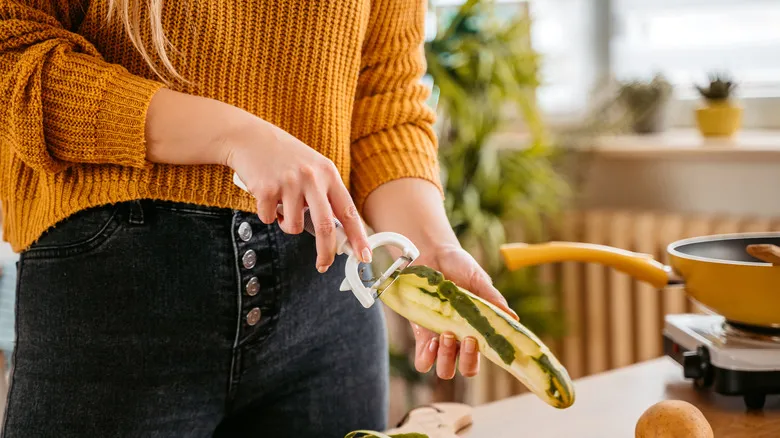
Many of us tend to slice or peel vegetables over the sink or sweep the scraps from the cutting board into the garbage disposal. In fact, a study by Consumer Reports revealed that 59% of people dispose of their vegetable scraps this way. However, just because most people do it doesn't mean it's a wise choice. In this instance, it's better to be among the few who avoid this practice.
Fibrous vegetables like celery, artichokes, and asparagus can be problematic for your garbage disposal, particularly if you have an older model. Even with a high-quality disposal, stringy vegetable pieces can lead to clogs in your drain after passing through the disposal blades. Vegetable peels can also create issues. "Individual peels are very thin and lightweight, so they can easily slip through the grates," explained Eric Schultz, director of product management at InSinkErator. "They can cause clogs in the same manner as fibrous vegetables." Therefore, instead of peeling and cutting your vegetables over the garbage disposal, consider using the trash can or a compost bag for hassle-free waste disposal that won't damage your plumbing.
11. Pumpkin pulp
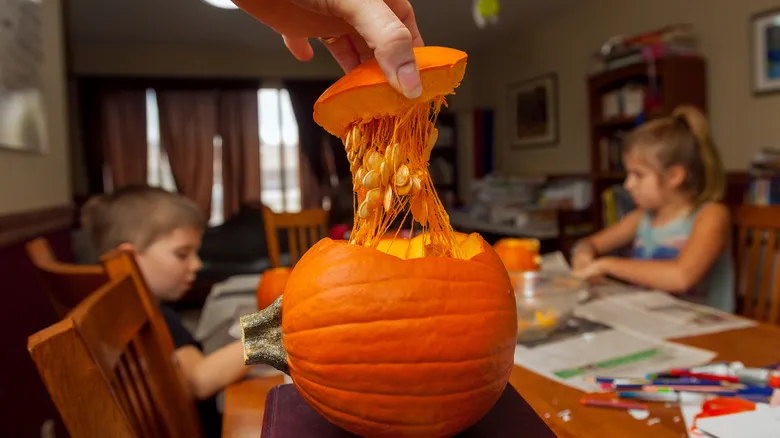
After carving a jack-o-lantern, you might be tempted to wash away the leftover pumpkin pulp down the drain, thinking it’s a simple solution. However, this can lead to plumbing issues that are far more frightening than your Halloween decor. Pumpkin pulp is notoriously tricky to drain due to its thick consistency. Its sticky, stringy nature causes it to adhere to the insides of your pipes instead of flowing away. Once it gets lodged in the drain, it can easily catch onto other food scraps you wash down, and as it dries, the pulp hardens, creating a significant blockage that may require professional assistance to remove. The large seeds in the pulp only exacerbate the problem.
To avoid this Halloween horror, consider disposing of the pumpkin in a different way. You can also get inventive and utilize the pumpkin guts by pureeing them to enhance the flavor of soups or smoothies with a seasonal twist.
12. Bones
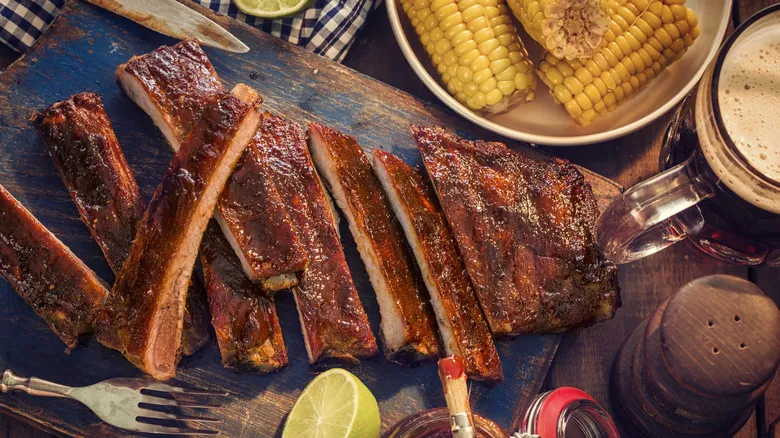
After consuming fish, poultry, or meat, you'll need to find a way to dispose of the bones. Even if you have a robust garbage disposal, it's best to avoid putting bones down the sink. Due to their hardness and strength, the disposal will struggle to break them down, potentially damaging the blades. If the bones do manage to get past the blades, they can create blockages further along the pipes. While smaller, more delicate bones like those from chicken or fish may go down more easily, it's still not wise to regularly send them through the disposal, as they can dull the blades and lead to further issues over time.
Another reason to refrain from discarding bones and meat scraps in the sink is that they can be repurposed to make bone broth. By simmering bones in water, you can create a collagen-rich, flavorful broth that can enhance soups, sauces, gravies, and various other dishes. Alternatively, you can enjoy bone broth on its own for a nutritious boost.
Once you've made your broth, you'll still need to dispose of the bones in a way other than the sink. You can add the leftover meat bones to your compost, or if composting isn't feasible, simply throw them in the trash.
13. Nuts and seeds
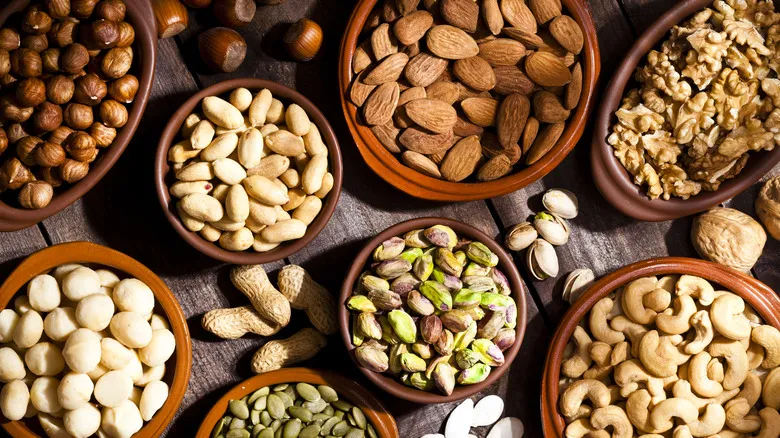
Nuts and seeds are not suitable for disposal down the drain. Firstly, hard nuts, large seeds, and fruit pits can damage and dull the blades of your garbage disposal. While it may seem like the disposal is functioning properly after grinding these tough items, it actually inflicts significant harm. Repeatedly doing this will wear down the blades, making them less effective at breaking down softer food items that would typically be processed without issue (according to Drain Terrier). This could result in the need for repairs or replacement of the disposal, leading to unnecessary expenses that can be avoided with a little caution.
Additionally, if the disposal blades manage to grind the nuts or seeds, they can create another problem. Finely ground nuts and seeds can turn into a sticky, paste-like substance that may accumulate in the pipes, leading to clogs in your sink drain. To prevent these issues and costly repairs, it’s best to dispose of nuts, seeds, and fruit pits in the trash instead, saving yourself the trouble.
Recommended
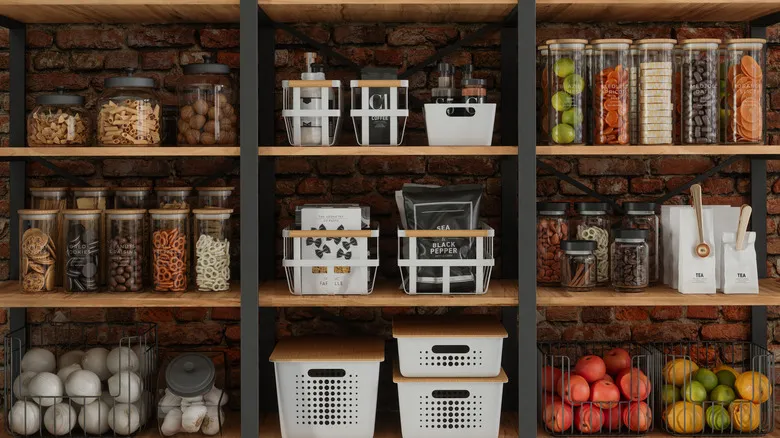
Say Goodbye To Pantry Pests With These Easy Tips
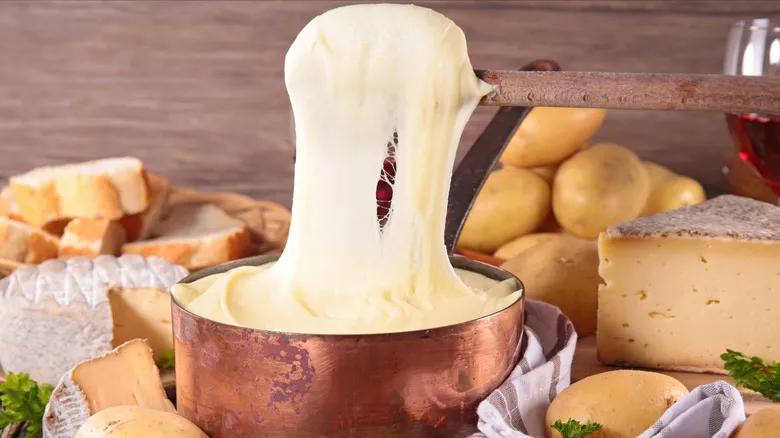
What Is Pommes Aligot And How Is It Different From Regular Mashed Potatoes?
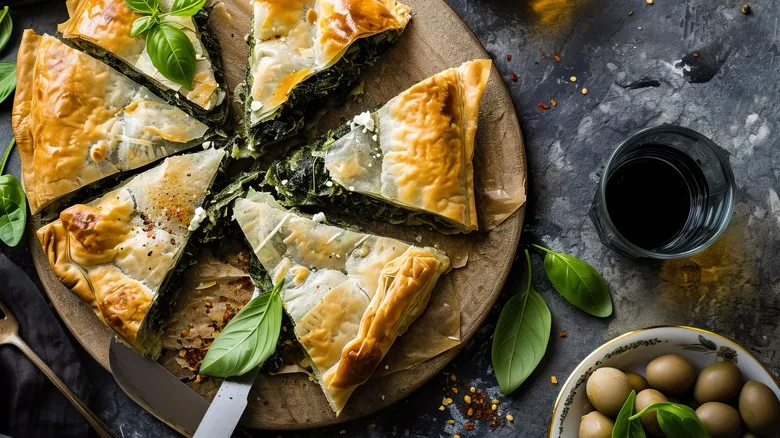
How To Add A Unique Breakfast Twist To Spanakopita
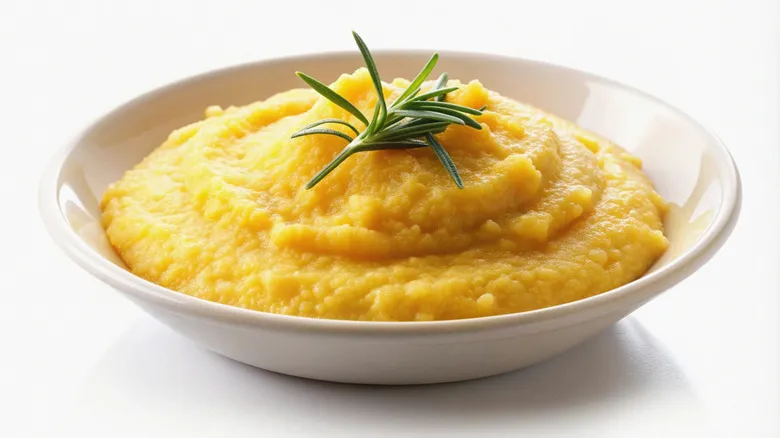
Reach For One Pantry Staple For Creamier And Faster Polenta
Next up

